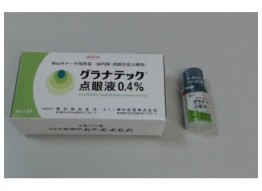Warfarin tablets 1 mg (thrombosis, heart attack, embolism)
What are Warfarin tablets 1 mg for preventing blood clotting?
Warfarin tablets, a widely prescribed anticoagulant medication, exert their therapeutic effect through a complex mechanism of action that primarily interferes with the body's natural blood clotting process. Warfarin's effectiveness lies in its ability to mitigate the risk of thromboembolic events, such as strokes and deep vein thrombosis, by impeding the formation of blood clots within the circulatory system.
At its core, Warfarin operates as a vitamin K antagonist, inhibiting the synthesis of biologically active vitamin K-dependent clotting factors in the liver. Vitamin K plays a crucial role in the carboxylation of these factors, rendering them functional in promoting clot formation. By blocking this process, Warfarin effectively prolongs the time it takes for blood to clot, thus reducing the risk of unwanted thrombus formation.
The effectiveness of Warfarin can be influenced by various factors, including dosage, individual patient response, and potential drug interactions. Achieving the desired anticoagulant effect necessitates careful monitoring of the International Normalized Ratio (INR), a measure of the blood's coagulation ability. Physicians adjust the Warfarin dosage based on the patient's INR levels to strike a delicate balance between preventing clotting and avoiding excessive bleeding.
Active principles: warfarin potassium
Amount: 100 tablets
Maker: Eisai Co., Ltd., Tokyo, Japan
Indications: treatment and prevention of the following:
- venous thrombosis,
- myocardial infarction,
- pulmonary embolism,
- cerebral embolism,
- cerebral thrombosis etc.
How to take
Adults: the daily dosage should be prescribed by your doctor according to the findings of a blood coagulation test (prothrombin time, thrombotest and INR) etc.
Children: the daily dosage should be prescribed by your doctor according to the findings of a blood coagulation test. For infants under the age of 12 months: a standard of the maintenance dosage is 0.16 mg per kg of weight per day. For children aged between 1 to under 15: a standard of the maintenance dosage is 0.04 to 0.10 per kg of weight per day.
Contraindications: do not use for the following patients:
- patients taking capecitabine (Xeloda),
- patients who are bleeding or prone to bleeding,
- patients with hepatic disorder, renal disorder, malignant tumor, hyperthyroidism or hypothyroidism,
- patients immediately after undergoing a surgery, getting an injury, labor or miscarriage,
- pregnant or breastfeeding women.
Important information
Avoid foods and drinks containing vitamin K in large amount such as natto (fermented soybeans), chlorella, aojiru (green juice), and Saint John's Wort while taking this medicine.
Avoid drinking an excessive amount of alcohol while you are receiving the medicine.
Avoid working or exercising which may lead to get injured as this medicine provides anticoagulant effect.
Blood coagulation test should be performed regularly. If you need to undergo any surgery or tooth extraction, consult with your doctor first.
The medicine has has a teratogenic effect to unborn babies. Female patients must avoid getting pregnant while taking this medicine.
If an allergic reaction occurs, patient needs to stop using the medicine and consult with their doctor. If patient is taking any other medication or treatment, they should consult with their doctor in advance.



